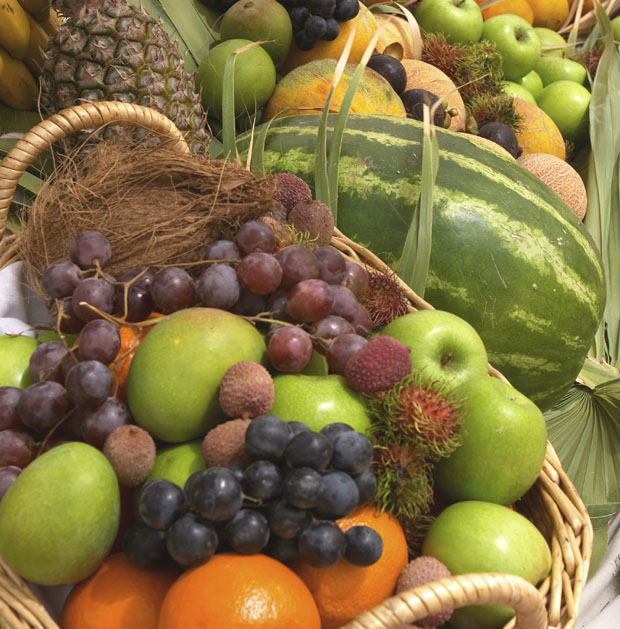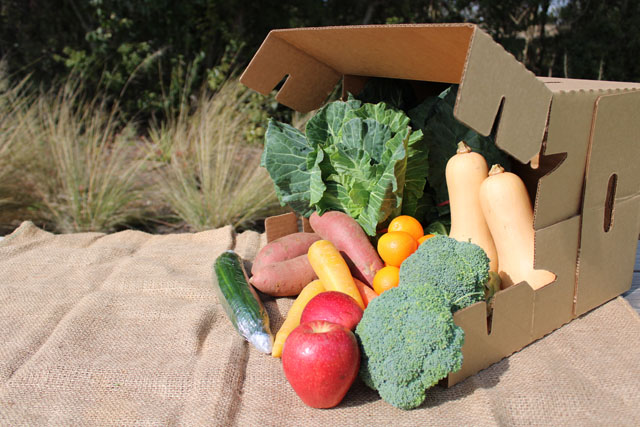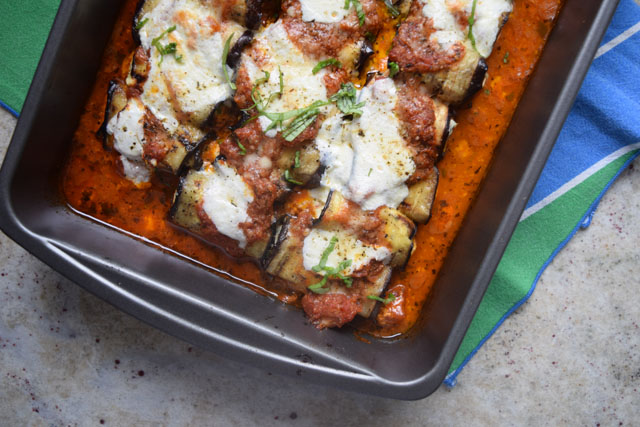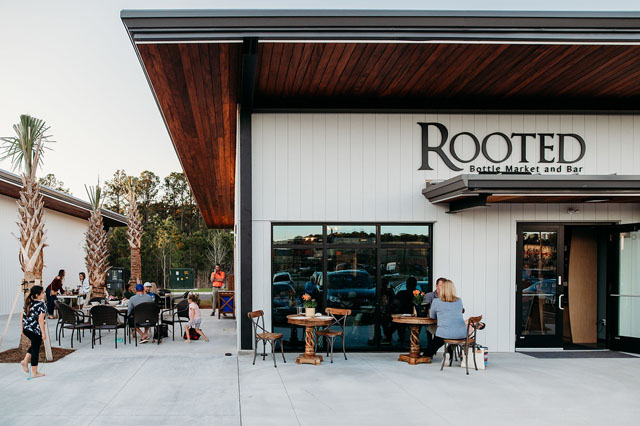Strategic Snacking
26 Jan 2014
Go ahead. Reach for that mid-afternoon snack. It’s a whole lot better for you than you think.
By Edna Cox Rice RD, CSG, LD

Does “healthy snacks” for weight loss sound too good to be true? Most people need to eat every three to four hours to avoid getting too hungry. Waiting much longer often leads to overeating. Not including snacks can actually sabotage your resolution to change your diet and lose weight this year.
Research shows that snackers tend to have healthier diets. Your body is better able to absorb and use the nutrients when meals and snacks are eaten. Dividing your calories into a pattern of three meals and two or three snacks, instead of only three meals, can help keep you energized all day long. The key to smart snacking is all in the planning. Strategize!
Strategies for Smart Snacking
Plan It. Start with a game plan. Get organized in the kitchen. Keep healthful staples on hand, such as whole wheat, low-fat crackers; whole wheat mini bagels; fat-free or low-fat cheese; and nonfat yogurt. Preparefruits and vegetables in advance to save time. Keep these healthy options visible: place a bowl of fruit on the counter; keep sliced veggies in the front of the frig, so they’re easy to grab and go. These simple strategies can make healthy snacking seem effortless.
Make It Count. Focus on including whole foods and limiting processed foods as often as possible. Whole foods not only contain Vitamins and Minerals, but also important antioxidants and phytochemicals that help boost your immune system. You’ll avoid spending your snack calories on “empty” foods and will make every bite count nutritionally. Be strategic and use minimally processed whole grains, vegetables, fruit, and nonfat milk products; for example, substitute crispy veggie slices in place of fat and sodium laden chips. An added advantage, nutrient dense whole foods are less costly than most processed foods.
Measure It. Portion control is a must to limit calories and keep snacking sensible. Measure it, weigh it, count it out; then store it in small containers or snack bags for right-sized portions. Spend a little time daily or weekly pre-portioning your snacks and you’ll not only save time, but you’ll slash calories as well!
Bring It. Pack it, stuff it, but always bring food with you. Pack apples, bananas, baby carrots, whole grain crackers in your purse, backpack, briefcase, or gym bag. Keep a snack-size bag of almonds, a box of raisins, or an energy bar in your desk at work. Having these healthier options on hand prevents you from getting caught short and reaching for that candy bar or doughnut in the break room.
Drink Up. Are you really having a snack attack? Or are you thirsty? We often confuse the sense of thirst with feeling hungry. Drinking water or any calorie-free beverage before a meal or snack can curb your appetite, and you can dramatically reduce your caloric intake just by drinking more water vs. sweet tea or sodas. Since we all need at least six to eight glasses of water daily, start your snack break with a tall glass of water. Wait a couple of minutes before eating; you may be surprised when those hunger pangs subside. You weren’t starving after all.
Go Lean. Lean protein can keep you feeling fuller longer. Snack on a combo of fiber-rich carbohydrate and protein for a satisfying snack. Pair veggies with hummus, or try protein-rich Greek yogurt with fresh fruit. If you need an energy boost to get you through the afternoon, go lean with a higher protein snack.
Crave Crunchy. If you crave crunchy snacks and typically reach for a bag of chips, try a new strategy: lose the chips and add veggies that crunch or air-popped corn. If you’re not ready to completely give up the chips, look for pre-portioned servings; a smaller bag of chips may save two to three hundred calories every time you crave the crunch.
Satisfy Your Sweet Tooth. Tame your sweet tooth with naturally sweet foods such as two fruit skewers dipped in dark chocolate; you only add about 185 calories. Other strategic options: a sliced apple with caramel sauce, about 200 calories; an eight ounce glass of chocolate soy milk is only 160 calories. You can feel good about and enjoy these snacks that are oh so sweet!
Make It Skinny. Save one or two hundred calories every time you use these simple strategies: switch from popcorn cooked in oil to air-popped or microwave fat-free popcorn; use fat-free half & half in your coffee rather than cream; go fat-free with all salad dressings; substitute non-fat yogurt for mayo in dips and sauces.
Fill up on Fiber. Increasing your daily fiber intake can facilitate your weight-loss goals. Fiber can help you feel full and satisfied with fewer calories. Consuming foods that are high in fiber help support a healthy digestive and cardiovascular system. Fruits and vegetables are among the best sources of fiber; they’re convenient and are tasty snack options.
To help you strategize here are a few Strategic Snack Selections with only 200 Calories or Less!
An ounce of baked multi-grain tortilla chips (about 15) and ¼ cup salsa: 180 calories and you get a boost of Vitamin C and Lycopene.
Convenient to keep at your desk: pumpkin seeds ½ cup, 143 calories, 6 g protein and loaded with Magnesium and Zinc.
Pair two slices of string cheese with whole-grain crackers (6 crackers) at only 170 calories: this is a satisfying high protein, low fat treat.
PB&J never goes out of style: peanut butter(or any nut butter) and jelly sandwich made with whole wheat bread (35 – 50 calories / slice), only one tablespoon of natural peanut butter instead of the usual two and reduced sugar jelly, 195 calories, 6 g protein, an excellent source of fiber and the antioxidant Vitamin E.
Quick and easy snack: classic hummus (2 ounces) and baby carrots (about 10) provides a tasty boost of Vitamin A, 170 calories, 4 g protein, and 5 g fiber.
Dip whole wheat pretzels (about 15) in low-fat ranch dressing: for 175 calories you get a boost of fiber and a low-fat way to satisfy that craving for crunch.
Top zucchini rounds (1 cup) with reduced fat cheese (1-2 ounces) for Vitamin C, Potassium, and Calcium: 190 calories, 4-6 g protein (depending on the cheese used).
Munch on Edamame: these baby soy beans are packed with protein and fiber, 150 calories.
Nonfat yogurt 6 ounces with 1/2cup strawberries (or fruit of your choice): 160 calories, and a good source of Vitamin C and calcium; for an added protein boost go Greek. Greek yogurt has twice the protein than most other yogurts.
One large grapefruit is only 60 calories and a great source of Vitamins A and C and fiber.
Graze on one cup cherry tomatoes at only 27 calories per serving: loaded with antioxidants Vitamin A, C, E and Vitamin K.
Fresh fruit 1 to ½ cup and 8 ounces nonfat milk “milk shake” is a power snack providing Vitamin A, C, D, Calcium and protein at only 150 calories.
½ cup Brown rice pudding made with nonfat milk or fortified vanilla soy milk makes a yummy Calcium and Vitamin D rich snack for 140 calories.
A mood-boosting snack of a low-fat carrot muffin topped with apple butter: 180 calories, Vitamins A, C, K, folate, and fiber.
For a warming treat try instant oatmeal topped with cinnamon: only 160 calories and a good source of fiber.
Ten kalamata olives and sparkling water: only 90 calories and rich in Omega-3 fatty acids.
Freeze a handful of red grapes for five minutes to make them sweet and crisp: 100 calories and a very good source of Vitamin C.











